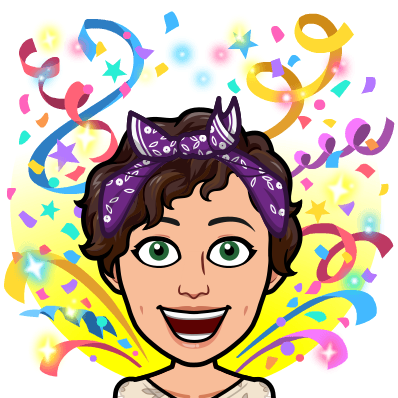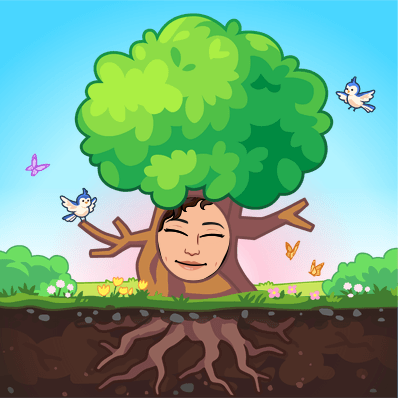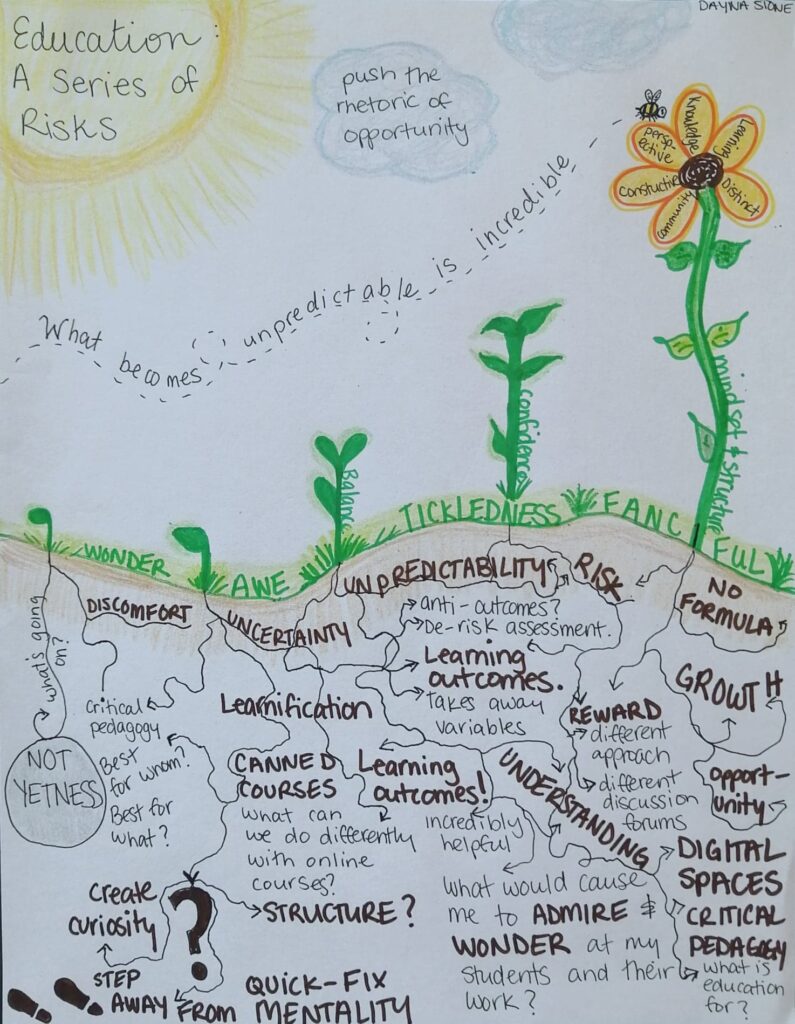I recently listened to the HyridPod podcast called Questioning Learning by Chris Friend and Amy Collier and created a sketchnote as my artifact (see below). I found this assignment helped me gain more technological experience that I can now add to my pedagogical content knowledge. While creating the sketchnote, I found that my first drafts were very wordy and confusing to the eye. I then began to think about how others would view this artifact and what would make sense. That is when I heard the word “grow” near the end of the podcast and immediately thought to use plants as a metaphor. Above the surface are strong plants all developing at their own pace, but underground, the intertwined roots give a strong base for the plant to continue to grow. Creating the blog post and embedding the artifact has taught me that technology does not have to be complicated in order to be effective. I encourage future educational practitioners to consider technologically interactive assignments to not only challenge students, but give them creative freedom as well.

Now onto the podcast. I enjoyed when Friend and Collier discussed various pathways and mindsets of teaching can impact the students’ learning. I agree with the points that Collier made about how learning outcomes can act as a guide for educators to build off of in order to see true growth in the student.

During my undergraduate degree, I created many lesson plans for elementary and secondary students, so I am quite familiar with writing learning outcomes. When I first started, I really disliked having to explain a goal for each activity or lesson plan. I found that even though I had written it down, it was nothing more than words on a page for me. It was not until last year that I realized the power of learning outcomes. Not only are they a tie to the curriculum expectations, but they allow the educator creative freedom to teach the content in ways that make sense for the students. In a way, learning outcomes can act as a pathway to discovery.

Collier also mentions that the word “understand” is defined in many ways, and even though the learning outcome for the lesson is for the student to understand the topic, each student will understand differently. For instance, one student might understand from a technical side, by relating to personal experiences, or by applying the topic to the assignments and projects in the future. Learning outcomes and understanding are difficult to define. Collier states that she “can see the ways in which they can provide a roadmap to faculty and students”. Even then, a road map contains many back roads, long routes, and short cuts. Metaphorically speaking, the class as a collective will not all take the same exits, take the same green lights, or the same right turns. Everyone finds their way differently, and everyone has a different experience.

